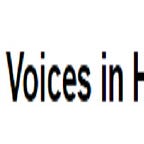Effective Nursing Communication Skills
Working in groups with other nurses and colleagues from different disciplines requires effective communication skills. Giving care that is patient-centered is also essential. Better patient outcomes are the consequence of Emotional intelligence for nurses and doctors who take the time to hear and comprehend the concerns of their patients. This is because they are better equipped to handle problems as they emerge. On the other side, a lack of communication in the healthcare industry might result in patients misinterpreting instructions and disregarding treatment plans. It can also disrupt a team’s workflow, which could lead to a medical error.According to Joint Commission studies, poor communication in healthcare during patient transfers is to blame for 90% of serious medical errors. The following list of soft skills training for nurses is covered in this article:
Written Communication
Effective nurse-to-nurse contact also requires the ability to communicate in writing. You will be in charge of establishing and upholding the patient’s medical record as a nurse. Your patients’ medical records must be accurate and current in order for them to receive the best care possible. Consider the patient’s right to privacy as well.
Verbal Communication
The importance of effective verbal communication cannot be overstated. Always make an effort to talk with precision, honesty, and clarity. Knowing your target audience and speaking to them in a manner appropriate for their age, culture, and level of health literacy are also crucial. Be mindful of your tone of voice if you’re annoyed or unhappy and try not to let it come out in your patient involvement.
Presentation Skills
Effective presentation abilities come in handy when you’re transferring patient care to another nurse or other healthcare professional. These skills will also help you express your knowledge and ability in a variety of work settings, including as giving presentations at conferences, participating in job interviews, and submitting case studies to doctors, among other things.
Active Listening
Hearing with the goal of understanding the other person’s experience is referred to as “active listening.” The best and most productive kind of listening calls for whole focus and commitment. Nurse executives and other healthcare professionals who wish to foster loyalty and dedication among their staff members may also benefit from this skill. Clinical nurses are not the only ones who can utilize it.
Patient Education
The vast bulk of patient communication is done by nurses. This includes informing patients and their families about health issues, diagnoses, treatment plans, and medication regimes. Family nurse practitioners who provide health and education counselling to patients and their families are especially in need of this skill.
The Journal of Compassionate Healthcare states that by putting yourself in the patient’s shoes and comprehending their needs and expectations, you can provide compassionate nursing care and effective Communication training for nurses in dignity Exchange in healthcare. Studies suggest that compassion can help to encourage quick recovery from acute illness, enhance the management of chronic disease, and decrease anxiety.
